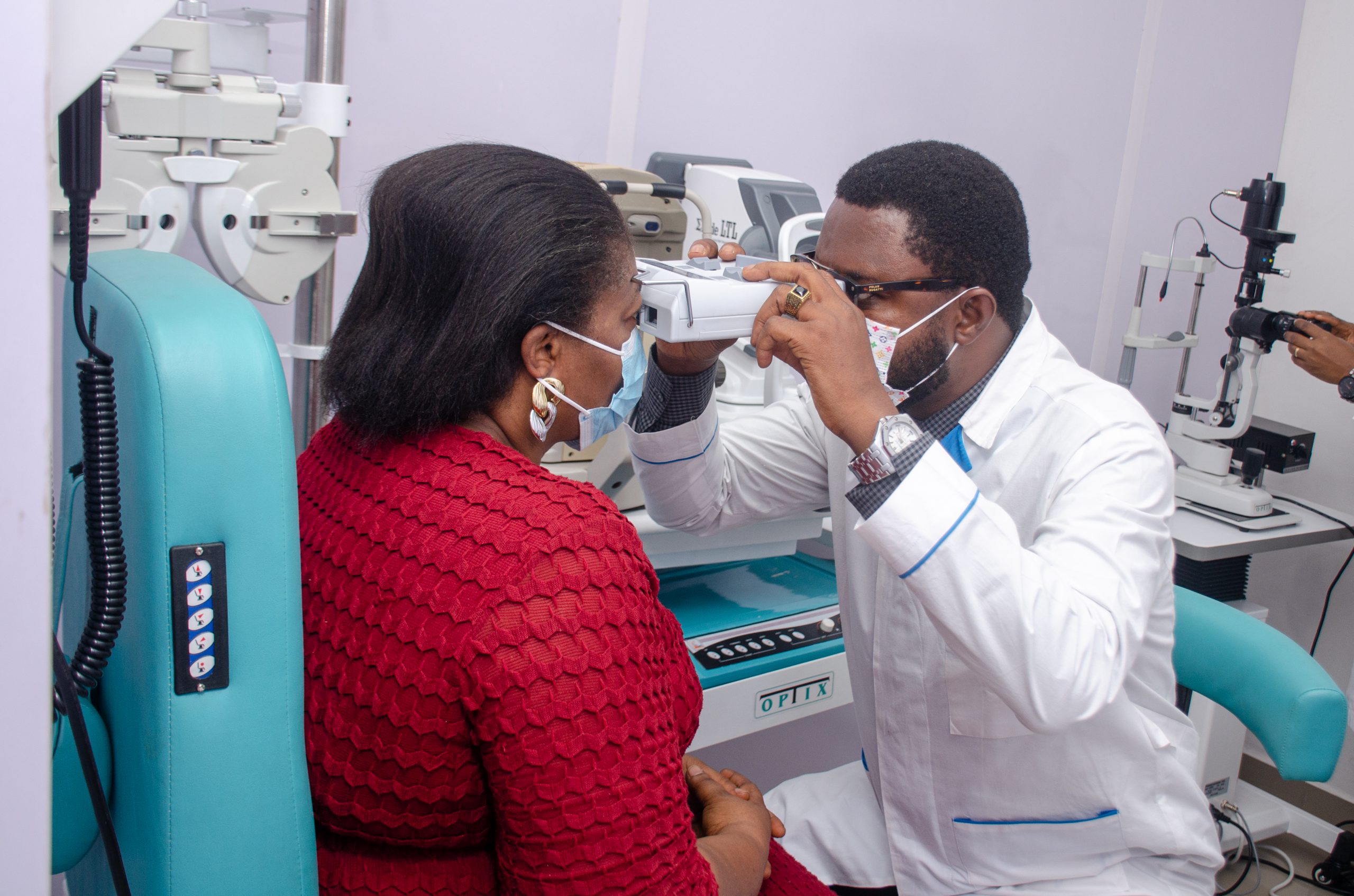
A cataract is the clouding of the natural lens of the eye, which leads to blurred or dim vision. It often develops gradually with age, but can also result from injury, diabetes, medications, or prolonged UV exposure.
If you’ve noticed that your vision is becoming cloudy, colours look faded, or night driving is more difficult, it may be time for a cataract examination.
At Leadway Eye Clinic, we offer advanced cataract screenings to diagnose, monitor, and manage cataracts — helping you preserve and restore clear vision.
Many people with cataracts describe it as looking through a foggy or dirty window. Other common symptoms include:
•Blurry or hazy vision
•Difficulty seeing at night or in low light
•Sensitivity to light and glare
• Halos around lights
• Fading or yellowing of colours
• Frequent changes in glasses or contact lens prescription
• Double vision in one eye
If you notice any of these signs, don’t delay a professional eye exam.
While cataracts are most commonly age-related, they can also be caused by:
•Diabetes
•Eye injuries or surgery
•Long-term steroid use
•Prolonged exposure to sunlight (UV radiation)
•Smoking or alcohol use
•Family history of cataracts
A proper examination helps identify the cause and determine the best path forward.
At Leadway Eye Clinic, our cataract examination is thorough, comfortable, and non-invasive. It typically includes:
Visual Acuity Test
To assess how well you can see letters or objects at a distance and up close.
Slit-Lamp Examination
Allows us to closely examine the lens of your eye for signs of clouding, as well as assess the cornea, iris, and other parts of the eye.
Retinal Exam
After dilating your pupils with eye drops, we inspect the retina and optic nerve to rule out other causes of vision loss.
Tonometry (Eye Pressure Test)
To check your intraocular pressure and screen for conditions like glaucoma that may also affect vision.
Lens Grading and Documentation
We assess the severity and location of the cataract and document it to track any progression over time.
In the early stages, cataracts may be managed with:
•A new prescription for glasses
• Brighter lighting
• Anti-glare sunglasses
However, as the cataract progresses and begins to interfere with daily life — such as driving, reading, or recognizing faces— we may recommend cataract surgery, a safe and highly effective procedure.
At Leadway Eye Clinic, we provide pre-surgical evaluation, referral to trusted surgeons, and post-operative care to ensure the best outcomes.
At Leadway Eye Clinic, you’re in expert hands. We offer:
•Accurate and early diagnosis using modern diagnostic tools.
•A patient-focused approach to care.
•Monitoring and support for all stages of cataract development.
•Guidance and referrals for safe, effective cataract surgery.
Whether you’re just noticing symptoms or already exploring treatment options, we’re here to help you every step of the way.
Cataracts are a natural part of aging — but vision loss doesn’t have to be. Early diagnosis leads to better outcomes and clearer vision.
